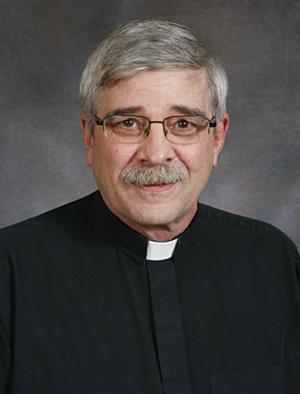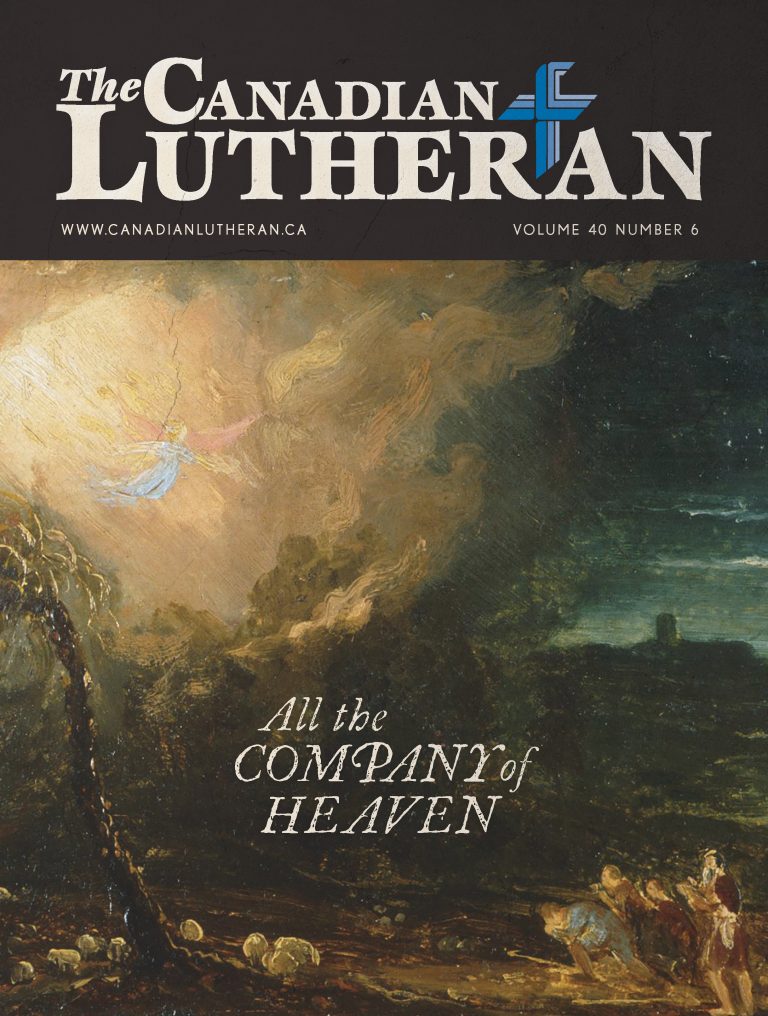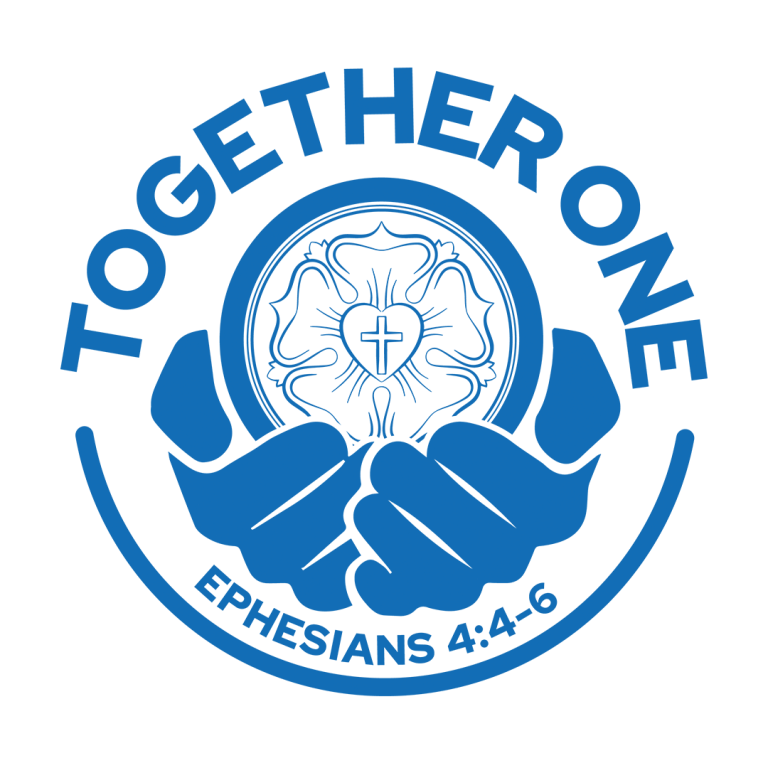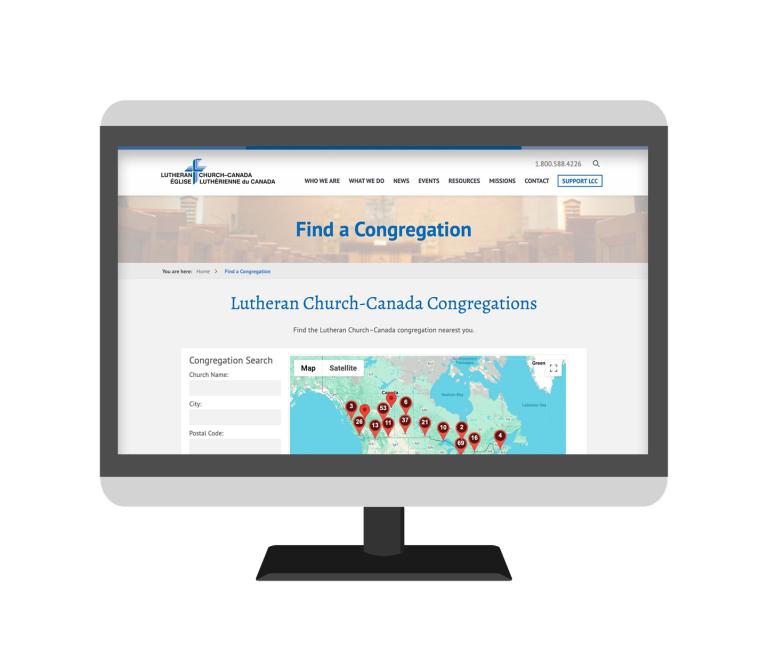A letter from LCC president to pastors concerning the Lord’s Supper during the pandemic
 April 21, 2020
April 21, 2020
Dear Brothers and Fellow Workers in the Gospel,
As I mentioned in my previous letter of April 17, our President’s Ministry Council discussed various concerns and issues that have been raised in connection with celebrating the Lord’s Supper during these challenging and difficult times. As per the request and advice of the PMC, I write the following to you in light of Article X of the Constitution of Lutheran Church—Canada which states in part: “The president has and always shall have the responsibility to advise, admonish, and reprove. He shall conscientiously use all means at his command to promote and maintain unity of doctrine and practice in all the regions.”
I would, in the first place, commend all of you for your concern about providing the blessings of the holy Sacrament for the people entrusted to your care. This is indeed meet, right, and proper; as the Large Catechism puts it: “Christ Himself says, ‘Those who are well have no need of a physician, but those who are sick’ (Matthew 9:12). In other words, He means those who are weary and heavy-laden with their sins, with the fear of death, temptations of the flesh, and of the devil. If, therefore, you are heavy laden and feel your weakness, then go joyfully to this Sacrament and receive refreshment, comfort, and strength” (LC, Part V.71-72).
The concerns, questions, and issues center around how, if at all, Holy Communion can, may, or should be celebrated and offered at the present time in light of the current circumstances in which we find ourselves. I’ve spent the past few days receiving information from a number of pastors across our Synod as to what they are doing in their congregations relative to Holy Communion and their thoughts and words of wisdom on the matter. In addition, I have received comments, questions and opinions from others on this issue. Needless to say, we are all over the map so to speak about this. I would categorize them as follows:
1. Declare a “eucharist fast”; that is, aside from private communion (of the sick, those scheduled for surgery, the dying, or those in great spiritual distress . . . if such is possible) there will be no celebration of the Lord’s Supper until government restrictions are eased or lifted.
Comment received: “Holy Communion is so named because it is a communal meal, not just a personal communion with Christ. Until the body of the congregation is able to come together to receive, we will fast in solidarity with our shut-ins, those under persecution, and others who are not able to receive the Sacrament for other reasons at this time. As we do so, we will focus our attention on the Lord’s promised presence in the Word and our baptismal union to Christ. We will pray that the blessed body and blood of Christ might soon be restored to us. And we will try to plan ahead in order to have everything in place to safely distribute and receive the sacrament corporately when we are able to do so.”
My advice: The self-isolation and social distancing government directives may be regarded, in a sense, as our ‘exile in Babylon.’ As Old Testament Israel could not partake of the sacrifices since the temple was destroyed and as they were physically removed from the land, they still had the Torah and the Psalms, as well as the Word of God proclaimed to them through prophets like Ezekiel and Daniel, while at the same time lamenting: “By the waters of Babylon, there we sat down and wept, when we remembered Zion” (Psalm 137:1). A declaration of a “eucharist fast” (not a “spiritual fast” as some have erroneously called it) would thus be meet, right and proper so to do.
2. Communion by small groups in the church by appointment or at normal Divine Service times, provided that proper safeguards are in place and such is conducted in accordance with current government mandates and orders.
Comment received: “Individuals coming for the Sacrament receive (a printed order of Confession & Absolution and the Lord’s Supper) to help facilitate orderly reception of the Sacrament of the Altar. They take one and use the front page for our short time together and then the second side is for home use. We print enough for each person/household to take home the one they’ve used. (This sign is posted on the front door of our church building): if you enter practice physical distancing: If you live together or arrived in the same vehicle you may sit together, however if this isn’t the case do not sit together. Follow the guidelines marked out in the Nave of the Church in the Sanctuary.”
My advice: This would be meet, right and proper so to do.
3. Private communion of individuals or families in the church by appointment, provided that proper safeguards are maintained in accordance with directives from the government authorities.
Comment received: “We are all ‘shut-ins’ at this point. As the shut-ins that I commune share in the communion of the congregation, in these extraordinary circumstances I would understand the same to be true for those households who choose to come to Church to receive the Lord’s body and blood from the altar. The Sacrament does not need to be received by a certain number of people in order for it to be a communal meal. It is a Communion with Christ and therefore also a communion with all those who commune with Him across time and space and between heaven and earth. The Confession that I swore to uphold at ordination states: ‘Now, forasmuch as the Mass is such a giving of the Sacrament, we hold one Communion every holy-day, and, if any desire the Sacrament, also on other days, when it is given to such as ask for it.’ AC XXIV.”
My advice: Such would be meet, right and proper so to do.
4. Drive-up communion of individuals or families by appointment outside the church building with proper safeguards maintained in accordance with government directives.
Comment received: “Because we are concerned about sanitizing our church properly, we are holding the Service of the Sacrament for people by appointment. Having received a printed order of service via email, they drive up beside a sub-altar in the church driveway and roll down their windows (or stand beside their car). The pastor has prepared the necessary elements for them on that altar, and then carries out the service in their hearing from the door of the church. The distribution is led by the head of the house, who brings the body and blood to his family. Everyone is using the individual cup-lets, and a disposable paten. This paten and the cup-lets are kept by those communing who are instructed to piously dispose of the wares while being mindful of the remaining drops of blood in the cup-lets. The sub-altar is disinfected after each appointment. New plates and cup-lets are prepared for the next family.”
My advice: Although options #2 and #3 are preferable; such is probably ‘OK’. The physical layout of the church property would also be a factor to take into consideration.
5. Celebration of the Sacrament by the pastor alone in the chancel that is recorded and posted on YouTube for people to watch.
My comment: This is problematic and I would advise that such not be done. While the context is not the same, the following words from the Smalcald Articles are significant and somewhat applicable: “If anyone says that he wants to administer the Sacrament to himself as an act of devotion, he cannot be serious. If he sincerely wishes to commune, the surest and best way for him is in the Sacrament administered according to Christ’s institution. To administer Communion to oneself is a human notion. It is uncertain, unnecessary, even prohibited. He does not know what he is doing, because without God’s Word he follows a false human opinion and invention. It is not right (even if otherwise done properly) to use the Sacrament that belongs to the community of the Church for one’s own private devotion. It is wrong to toy with the Sacrament without God’s Word and apart from the community of the Church” (SA Part II, Article II.8-9).
6. Pastors celebrate and partake of the Lord’s Supper at home with their immediate family only.
My comment: This is problematic and I would advise that such not be done; so the reference from the Smalcald Articles above states: “It is not right (even if otherwise done properly) to use the Sacrament that belongs to the community of the Church for one’s own private devotion. It is wrong to toy with the Sacrament without God’s Word and apart from the community of the Church” (SA Part II, Article II.9).
7. Heads of households celebrate the Lord’s Supper with their immediately family.
My comment: This is problematic and I would advise that such not be done. The above statement from the Smalcald Articles would mitigate against this. In addition, our Augsburg Confession clearly states that “no one should publicly teach in the Church, or administer the Sacraments, without a rightly ordered call” (AC XIV). Moreover, the house churches mentioned in the New Testament (Romans 16:3, 5; 1 Cor. 16:19; Col. 4:15; Phm. 2) where the early Christians gathered together for worship, which included the breaking of bread or partaking of the Lord’s Supper, are not analogous to families being quarantined in their homes as a result of the Covid-19 pandemic. Instead, they were homes of wealthier patrons who provided space for the gathering of fellow believers led by the appointed elder or pastor. C. F. W. Walther says the following on this matter in his Pastoral Theology: “Starting with Luther, the vast majority of our theologians maintain that the Holy Supper should never be administered privately by a person not holding the public preaching office or by a so-called layman—partly because, unlike with Baptism or Absolution, there cannot be an emergency regarding Holy Communion which would justify straying from God’s order (1 Cor. 4:1; Rom. 10:15; Heb. 5:4); partly because the Holy Supper ‘is a manifest confession and should thus have manifest ministers’; partly because divisions can easily be caused by such private acts of Communion” (p. 206).
8. Virtual or live-streamed communion where the people gather in their homes with bread and wine before them and the pastor remotely speaks the words of institution and the people partake of the elements.
My comment: This is problematic and I would advise that such not be done. The Guidelines for Congregational and Pastoral Practices that was recently amended by the PMC states the following: “Administering the Lord’s Supper in the context of live-streamed services (where the pastor conducts the Service of the Sacrament from one location, the viewers follow the service from other locations, and all of them eating and drinking as the pastor directs) is problematic. It changes the communal meal aspect of the Lord’s Supper of our coming together to share together a common meal. It is also problematic in that the pastor cannot provide proper oversight and care to those who are eating and drinking, and he has no way of knowing what elements are actually being used and who is partaking of them. Moreover, when the actual words and actions of the pastor in consecrating the elements are separated by time, distance, or technological means from the distribution, no assurance can be given that Christ’s institution is being followed or what is actually being received. Holy Communion, therefore, should not be celebrated over video-digital means” (p. 4).
While further discussion will undoubtedly continue on these matters, and while some might disagree with the above comments; such is my advice on this situation at the present time. Moreover, let us not ‘lose sight of the forest because of the trees’ and become so immersed in these matters pertaining to celebrating and offering the Holy Supper during this pandemic that we forget and ignore the following two significant statements from our Lutheran Confessions.
First, “There is a twofold eating of Christ’s flesh. One is spiritual, which Christ describes especially in John 6:54. This ‘eating’ happens in no other way than with the Spirit and faith, in preaching and meditation on the Gospel, as well as in the Lord’s Supper. By itself this is useful and helpful, and necessary for all Christians, at all times, for salvation. Without this spiritual participation the sacramental or oral eating in the Supper is not only not helpful, but is even harmful and damning. This spiritual eating is nothing other than faith. It means to hear God’s Word (in which Christ, true God and man, is presented to us, together with all benefits that He has purchased for us by His flesh given into death for us, and by His blood shed for us, namely, God’s grace, the forgiveness of sins, righteousness, and eternal life.) It means to receive it with faith and keep it for ourselves. It means that in all troubles and temptations we firmly rely—with sure confidence and trust—and abide in this consolation: we have a gracious God and eternal salvation because of the Lord Jesus Christ” (FC SD VII.61-62).
And second: “We will now return to the Gospel, which does not give us counsel and aid against sin in only one way. God is superabundantly generous in His grace: First, through the spoken Word, by which the forgiveness of sins is preached in the whole world (Luke 25:45-47). This is the particular office of the Gospel. Second, through Baptism. Third, through the holy Sacrament of the Altar. Fourth, through the Power of the Keys. Also through the mutual conversation and consolation of brethren. ‘Where two or three are gathered’ (Matthew 18:20) and other such verses (especially Romans 1:12)” (SA Part III, Article IV).
“The mutual conversation and consolation of brethren.” That is what I intend to address in my next letter to you in a few days; namely, how we as pastors should be conducting ourselves toward one another and be speaking to and with one another, not only at the present time but at all times.
“Now to him who is able to keep you from stumbling and to present you blameless before the presence of his glory with great joy, to the only God, our Savior, through Jesus Christ our Lord, be glory, majesty, dominion, and authority, before all time and now and forever. Amen” (Jude 24-25).
In Christ,
Rev. Timothy Teuscher, President of Lutheran Church–Canada
A printable version of this statement can be downloaded Here.
———————






